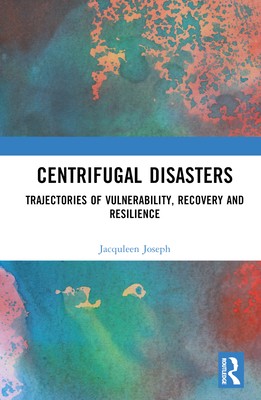
- We will send in 10–14 business days.
- Author: Jacquleen Joseph
- Publisher: Routledge Chapman & Hall
- ISBN-10: 1032409894
- ISBN-13: 9781032409894
- Format: 15.6 x 23.4 x 1.4 cm, hardcover
- Language: English
- SAVE -10% with code: EXTRA
Reviews
Description
This book focuses on centrifugal disasters where a mass of seemingly unconnected people are impacted due to a manmade disaster. In India as well as in South Asia, disasters have increased significantly in the last few decades. The book documents three major disaster events--26/11 terror attacks and 13/7 blasts in Mumbai, and a hospital fire in Kolkata-- and analyses the lived experiences of the survivors and their families.
Drawing on the authors' experience of working with survivors, first responders (police, health workers), as well as policy makers, the book suggests a model of disaster intervention that is a combination of academic expertise and practical experiences. Besides providing a framework for disaster interventions, it also explores the moral and ethical considerations around disaster interventions.
This important book will be of interest to students and practitioners of disaster management including first and second responders and those working in public management, risk management, hazards and disasters, emergency response, terrorism and political violence. It will also be useful to mental health professionals, social workers, psychologists, civil society organizations, as well as bureaucrats and policy makers.
EXTRA 10 % discount with code: EXTRA
The promotion ends in 17d.17:04:36
The discount code is valid when purchasing from 10 €. Discounts do not stack.
- Author: Jacquleen Joseph
- Publisher: Routledge Chapman & Hall
- ISBN-10: 1032409894
- ISBN-13: 9781032409894
- Format: 15.6 x 23.4 x 1.4 cm, hardcover
- Language: English English
This book focuses on centrifugal disasters where a mass of seemingly unconnected people are impacted due to a manmade disaster. In India as well as in South Asia, disasters have increased significantly in the last few decades. The book documents three major disaster events--26/11 terror attacks and 13/7 blasts in Mumbai, and a hospital fire in Kolkata-- and analyses the lived experiences of the survivors and their families.
Drawing on the authors' experience of working with survivors, first responders (police, health workers), as well as policy makers, the book suggests a model of disaster intervention that is a combination of academic expertise and practical experiences. Besides providing a framework for disaster interventions, it also explores the moral and ethical considerations around disaster interventions.
This important book will be of interest to students and practitioners of disaster management including first and second responders and those working in public management, risk management, hazards and disasters, emergency response, terrorism and political violence. It will also be useful to mental health professionals, social workers, psychologists, civil society organizations, as well as bureaucrats and policy makers.


Reviews